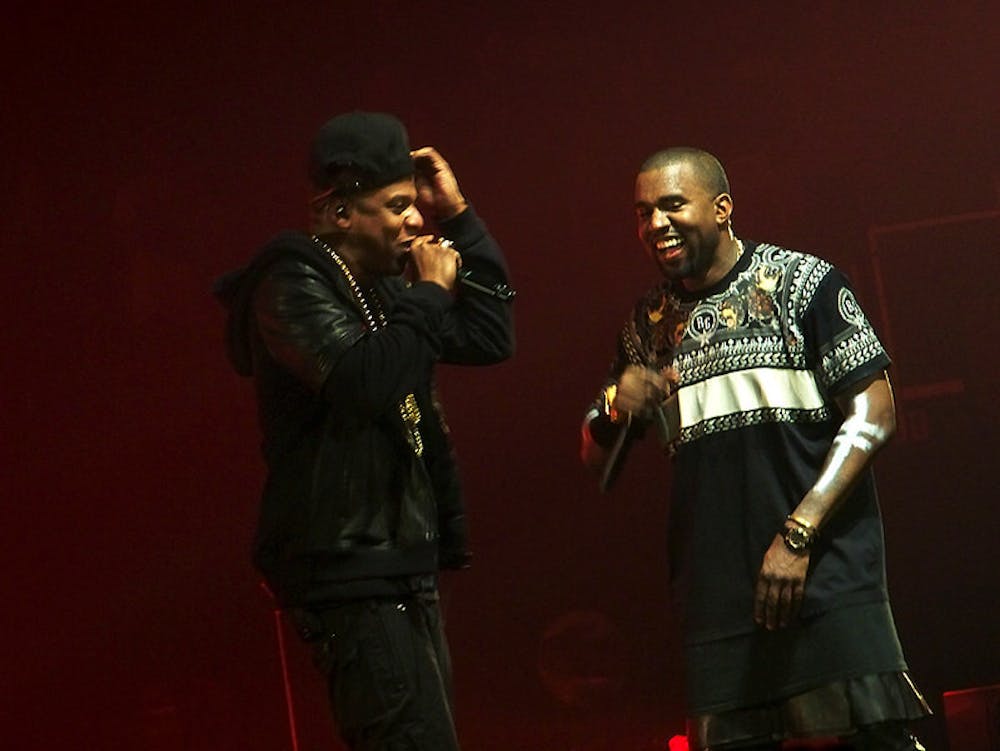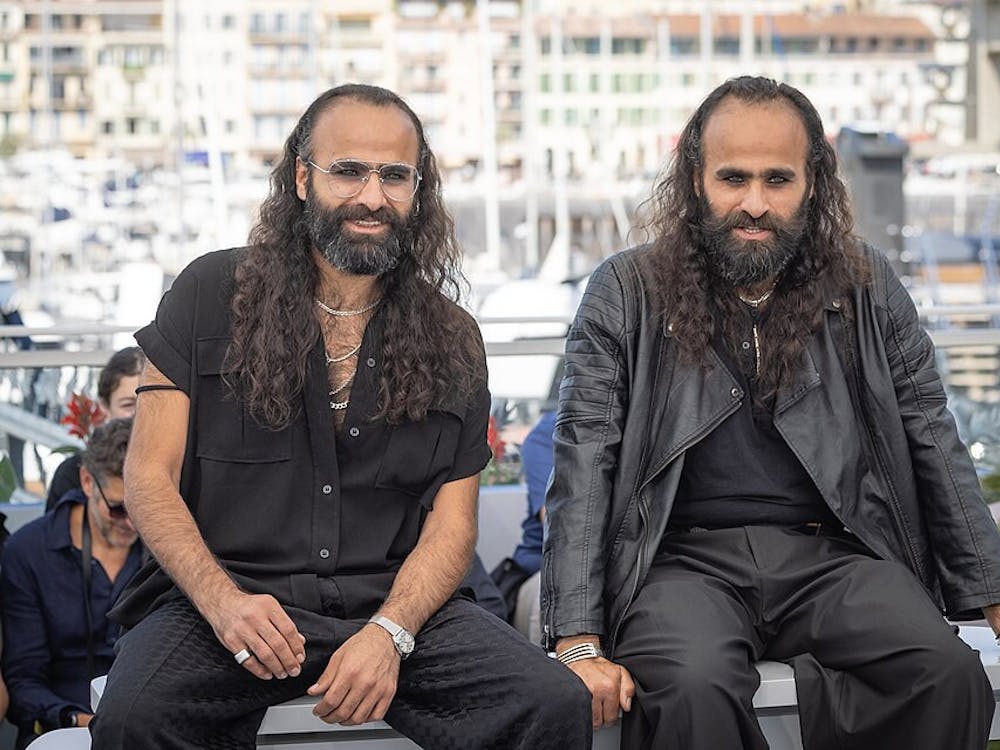It's finally here. Kanye West has released Donda, an almost two-hour-long album that comes on the backs of three listening sessions, years of missed release dates, a failed bid to become president, a brewing feud with Drake and a very public divorce from Kim Kardashian.
One might think that this would result in a half-finished album full of the varied mental anguishes of an extremely wealthy man going through a prolonged mid-life crisis... and it sort of does. But despite, or perhaps because of this, the album has a raw energy and creative effervescence that gives plenty to critique, consider and genuinely enjoy.
The album is certainly bloated, with enough duds (“Tell the Vision,” a horribly mixed, recycled Pop Smoke verse that seems to be the most bizarre interlude West’s ever had), but its highlights are some of the best that West has perhaps ever delivered. For example, “Moon,” featuring Don Toliver and Kid Cudi, includes contemplative yet hauntingly beautiful verses on their struggles with mental health: “Heavens know I might never sleep / Trouble in my soul... How can I get through?”
West’s reunion with Jay-Z on “Jail” is also an early high point on the album, with both on form, backed by a sparse but highly energetic beat carried by soaring electric guitar riffs. Jay-Z moves from comparing himself and West to Moses and Jesus to throwing in some pointed remarks on West’s affiliations with President Donald Trump: “Stop all that red cap / We going home.”
Finally, “Off the Grid” delivers one of West’s funniest verses in a while, in which he goes toe-to-toe with Fivio Foreign on a drill beat, throwing in lines about seeing Lionel Messi playing soccer in his backyard, calling holy water his favorite beverage and calling God his “bestie.”
The standouts on most tracks, though, are more often the featured artists that West brought on. Fivio Foreign has the best verse of his career on “Off the Grid,” in which he goes unhampered for two minutes straight, talking about his relationship with God, the justice system, his family and the alienation fame brings. Roddy Ricch, Lil Yachty, newcomer Vory and Jay Electronica are also some of the stand-out features on the album, who in each case almost take over the songs that they were on, which to some extent overshadow West’s contribution.
Of course, there was also the perplexing decision to include both DaBaby and Marilyn Manson on “Jail, Pt. 2,” something that will probably haunt this album for a long time. One assumes that West’s idea was to bring them together in an act of Christian forgiveness, but neither of them seems to be doing any of the apologizing that usually prefigures forgiveness or even addressing the accusations against them.
This eccentric commitment to Christianity is prevalent throughout the album, and despite it being titled after his mother, it's fairly clear that the album is more about God than it is about Donda West. Several tracks have organs and choirs throughout them, the gospel themes are brought up incessantly, and the main track on the album is not “Donda,” which is more of an interlude, but “Jesus Lord,” a 10-minute track with the constant refrain of “Tell me if you know someone that needs / Jesus, Lord).”
In fact, the album moves from the grittier, sparse, Yeezus-reminiscent cuts like “Off the Grid,” “Ok Ok” and “Junya” to the contemplative tracks in the middle of the record, dealing with his mother in particular; post-“Jesus Lord,” the tracks become more clearly gospel-inspired, with the album ending on the organ-based “No Child Left Behind,” in which West sings the refrain “He's done miracles on me” as the track reaches a crescendo. Considering this is the same song that he levitated on at Mercedes-Benz Stadium during the listening sessions, it's quite clear that he seems to be reaching the closest to God, and to heavenly redemption, at this point.
I would like to say that these thematic movements are done perfectly, moving from concept to concept with clarity and purpose, but there is a rawness to the album that makes these movements at times jarring, at times off-putting.
However, as I can’t help but mention, the standouts will continue to stand out. For example, “Come to Life” may be one of the most sonically beautiful songs I’ve heard all year, with its rising piano crescendos and West’s spine-tingling vocal performance. It’s by no means a perfect album, but it’s still a very fruitful listen — it’s probably the best amalgam of gospel and hip-hop that he’s managed to create so far. This album quite convincingly demonstrates that if anybody can manage to get a bunch of young people to listen to a 44-year-old man rap about the glory of God and still keep it interesting, it's Kanye West.





